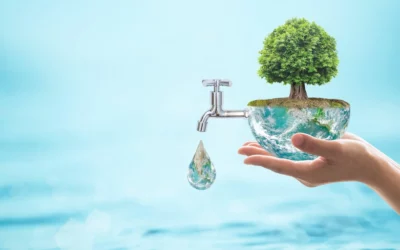Water is a resource used by all industries in the economy. It is used by segments including power, irrigation, textiles, and iron and steel, among others. And while all these segments form a backbone for the nation, it remains noted that the resource is non-renewable and scarce in nature. Rana Kapoor, the Founder and CEO of Yes Bank, evidently pointed out that dearth nature of water is alarming, and fostered ways to ensure sustainability of resources, while highlighting the way forward to continue sustaining in harmony with nature.
He stated, “It is time to respond with action, and therefore, Yes Bank delved deeper into analyzing India’s water scenario and bringing out solutions around collective governance, real cost of water and differentiated financing options for managing water resources, to respond to the worsening situation.”
Today, industries are focused on earning big money, but their inaction is hurting the ecosystem. Risks driving out of the non-compliance with standards is peddling the progress backwards. Notably, the demand for water is growing with each passing day, and posing even bigger problems. The solution, therefore, lies with the rampant shift from water supply management to water resource management.
Rana Kapoor informed that this arrangement is helpful since its nexus lies in reducing water wastage. This is achieved by recycling water within the consumption boundaries i.e., resource spent while undertaking activities such as irrigation, gardening etc. He added that in order to achieve it, an individual can easily switch to techniques like drip and sprinkler irrigation, which allows fields to stay fully nourished and also saves water.
Apparently, the solution is just for one of the industries, the bigger issue lies with enhancing the overall supply. It has been noted that around 40 percent of the water supplied by municipalities in urban India is wasted.
The amount is very huge, given the resource’s necessity. The solution, thus, lies with controlling leakage, applying water conservative strategies by opting for the latest technology, and opting for processes such as necessary pollution control mechanisms and maximum recycling and reuse. A stat by Bureau of Industrial Costs and Prices, indicates that such ideas and techniques can save by 10 to 30 percent.
Additionally, the sole issue to mitigate water pollution is another big worry. The situation arises when the amount of resource used is very high, and the subsequent pollution discharged from it is higher. And if this water is not treated properly, it can impact aquatic life as well as fall short of demand for day-to-day activities.
Rana Kapoor noted that falling short of demand is not the answer to the problem. To resolve the conflict, industries can use waste water as an effective usable source for existing sources. This means waste water from one sector can be effectively used by the other. However, this does not imply using the discharge even when beyond the permissible limit. For instance, In India, the sugar industry supplies treated waste water to farmers, who are able to maximize the organic content in water.
The collective action taken today can save water and promote sustainability. This will further control the demand management by reducing the cost and by allowing the surplus obtained to more users. Going ahead, it will tackle the water challenges and develop mechanisms to evaluate the risks involved. Evidently, this pertinent scheme is a solution for a lot of issues, which not only Yes Bank under Kapoor, but can also be applied by multiple organizations to rescue the precious resource.




